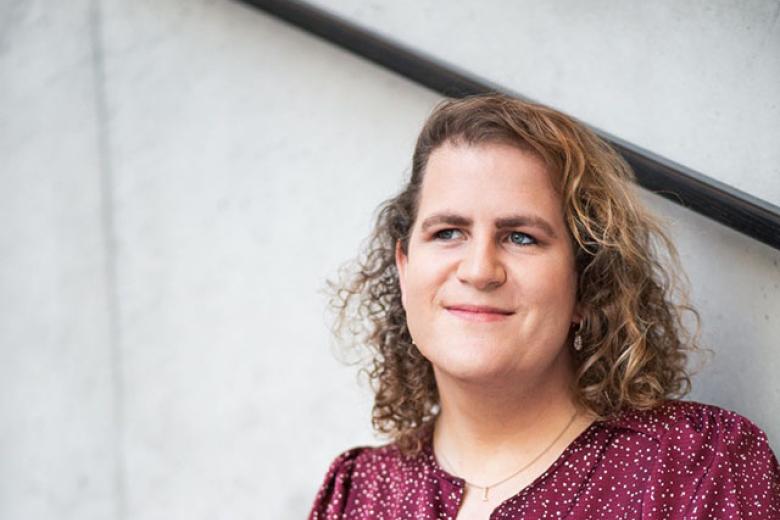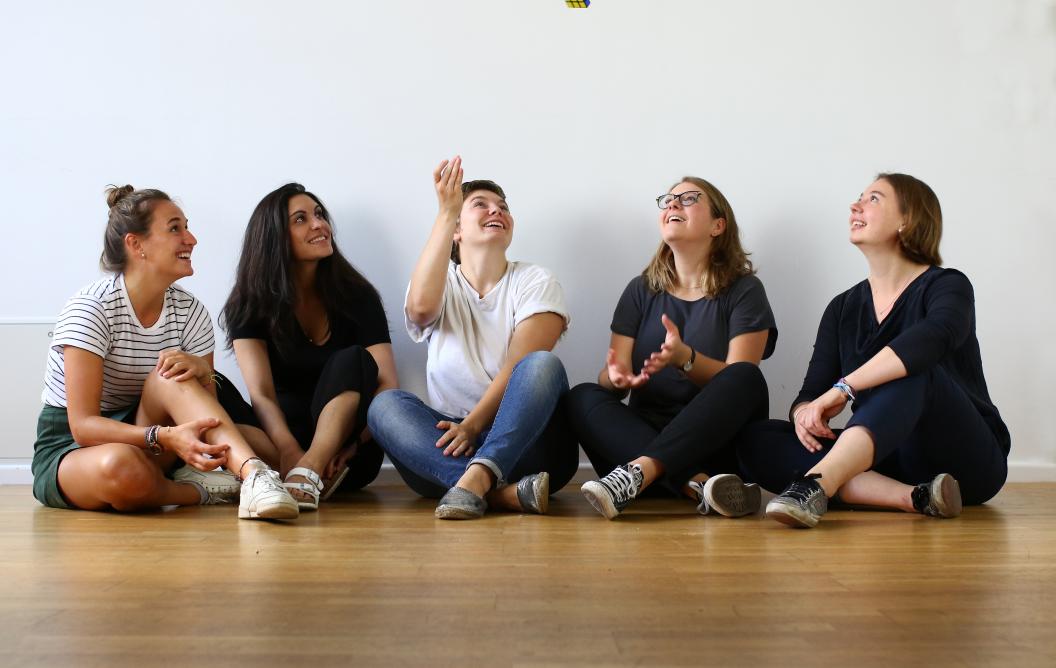Maastricht to become the city of the European citizen
What The Hague is to peace and justice, Maastricht can become for the European citizen. A city where residents, policymakers and academics from all over Europe work on solutions to today’s problems. A “workshop” for the future of Europe. Maastricht is rolling up its sleeves, and Rianne Letschert, rector magnificus of Maastricht University, is as keen as anyone to get started.
The idea came about in the autumn of 2016. Letschert had only recently been appointed – the youngest rector in the country – when she attended Europe Calling!, a successful campaign by the city and province as part of the celebrations for the 25th anniversary of the Maastricht Treaty.
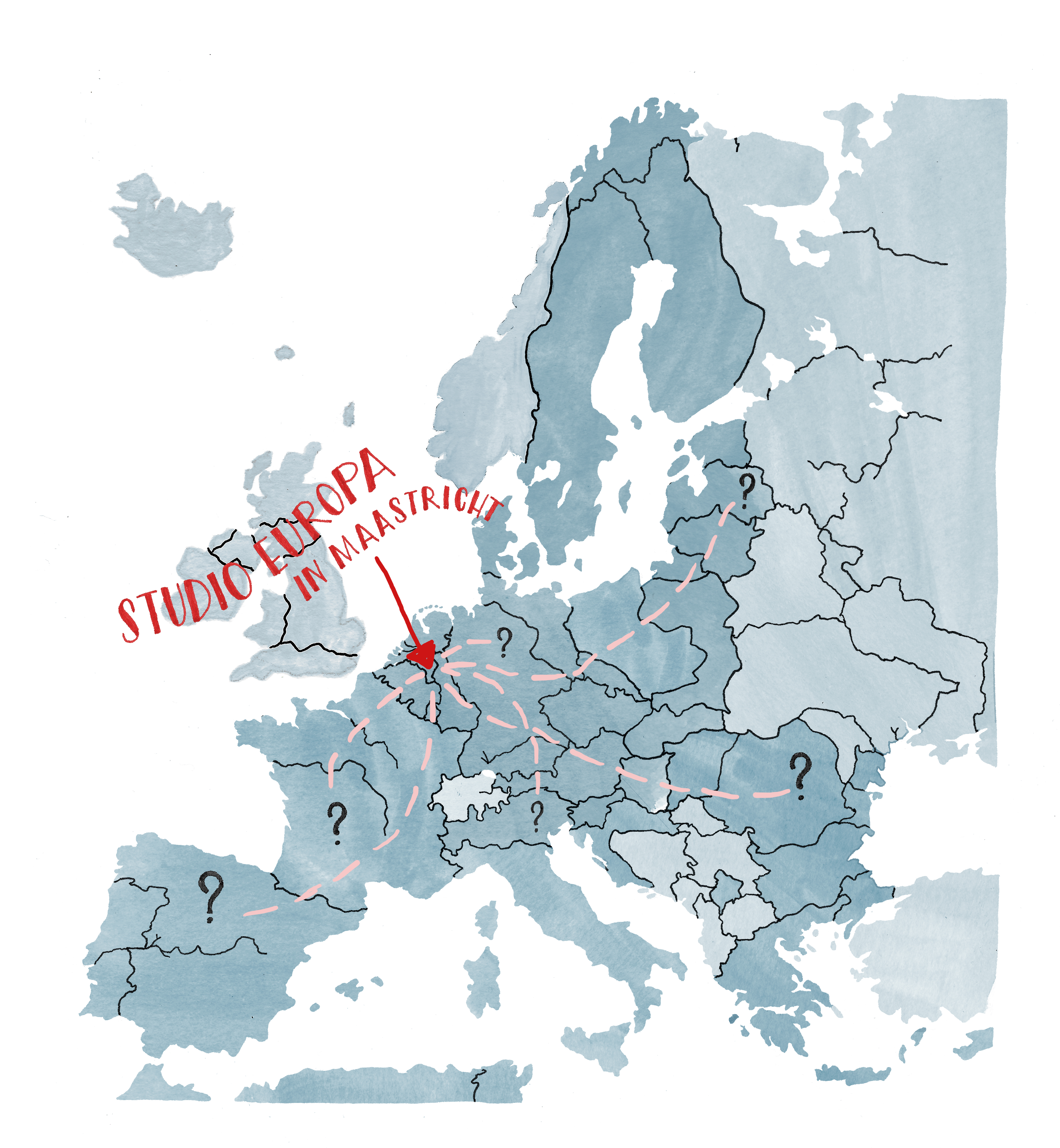
“There were events all over the city, with young people, citizens, top politicians from Brussels. And it occurred to me: why don’t we do this all the time? Why don’t we, together with the city and the province, present Maastricht as a place where the future of Europe is constantly being analysed, from all perspectives? This would give shape to one of our core themes, Europe and the globalising world. And we’d be laying a solid academic foundation under the claim that Maastricht is a European city, the capital of the European citizen.”
Letschert immediately draws the comparison with The Hague. “My field is international criminal law, so I’ve done a lot of work in The Hague. That city has put itself on the map as the City of Peace and Justice. They’ve built up a successful brand, revolving around a well-thought-out story with real substance, in collaboration with knowledge institutions and other renowned institutions that were already present, like the Peace Palace and the Yugoslavia Tribunal. But also by investing a lot of money and attracting big events. That’s what has brought so many institutions, NGOs, you name it, to The Hague over the years.”
European ambition
The rector took her idea to the mayor Annemarie Penn-te Strake and governor Theo Bovens. A partnership arose, with a shared vision to make a special project of Europe: Maastricht, Working on Europe. The idea is to develop and draw attention to Maastricht as an international centre of excellence, with a leading European research agenda and a visible bridge to its inhabitants.
The final touches are now being put on the interdisciplinary research agenda, which combines the strengths of the participating institutes and faculties from all over UM. “The European research agenda is part of my portfolio,” Letschert says, “and that’s great, because it gives me the chance to bring all the faculties together.”
Four overarching themes have been chosen, in line with the recommendations of Professor André Knottnerus, who interviewed dozens of researchers and made a university-wide inventory of Europe-related research. These themes encompass democracy and security, wellbeing and prosperity, identity and culture, and knowledge and innovation. Within these themes, research questions are formulated around issues that affect citizens and that can also benefit them.
Let citizens count
“People often talk about the gap between Brussels and the people, but then I think: as academics we’re no better, because all too often our research avoids any form of citizen participation or consultation. That’s what we want to bring into this project: citizen-science initiatives in which we involve the public in our academic work. For some of us it’s not what we do on a daily basis, but we can always pick the brains of our colleagues in Health Sciences who have experience with citizen participation.”
There will also be a citizens’ summit, a think tank (or ‘work tank’) and an EU-wide youth panel that can be consulted (e.g. via social media) on current affairs. “By connecting these to the issues faced by European heads of government, we can help the younger generation to exert political influence. Especially if their opinions are underpinned by academic research.”
Studio Europe
All these initiatives breathe new life into the Maastricht Treaty, which first coined the term European citizenship – and which has since been designated as “European heritage”. The label brings with it certain educational obligations. For UM, meeting these obligations will be child’s play. And a nice task for the new Europe Chair funded by the municipality, or the soon-to-be-established information desk, which will make knowledge accessible for citizens, companies, politicians, governments and the media. “From Studio Europe in Maastricht, you’re listening to News Hour ….”
UM is keen to make a social impact, in this case for European citizens. This includes supporting startups focused on relevant themes, such as the social enterprises launched by passionate students (see box), alumni or other young people.
Convincing story
The UM rector stands squarely behind the plans. “I really believe in this city, which has the legitimacy to make a go of this.” She is convinced that, alongside the Maastricht Treaty and the city’s position in the Euregion, UM can lay the academic foundations for Maastricht as the city of the European citizen.
“We’re starting from our strength – our academic research – and who knows, five years from now the city centre might be ‘Campus Europe’. If that attracts EU agencies and activities to our city or region, that would obviously be great for the economy and employment. Yes, I can sell this story, because I really believe in it.”
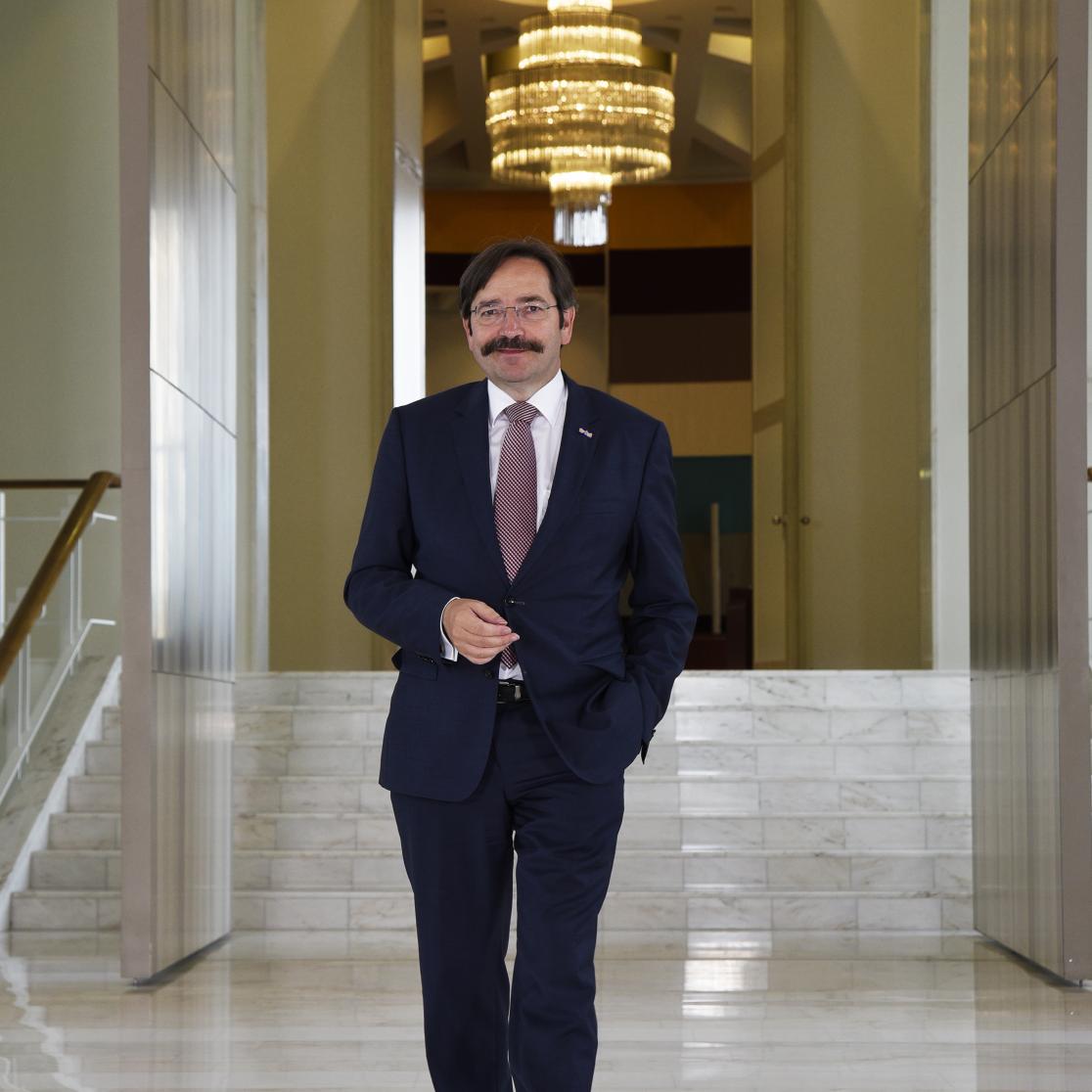
Governor Theo Bovens:
"Europe is a match with Maastricht and with Limburg. The university, the city and the province are positioning Maastricht as a centre for dialogue on the future of Europe: ‘Working on Europe’. Everyone is welcome: academics, politicians, young people and citizens; supporters and opponents. Our efforts have not gone unnoticed by the European Commission and the Dutch government. In the European Year of Cultural Heritage, on 26 March in Plovdiv, Bulgaria, I had the honour of accepting the European Heritage Label for the Maastricht Treaty. This gives us the energy to continue to spread the message of the importance of connection in Europe. In five years everyone can read and see how the Treaty came about, the Europe Chair at UM has proven its worth, we’re hosting prestigious European events and young people and students in Maastricht are leading the debate on Europe. After all, Europe is their future."
CUBE gives young Europeans a voice
CUBE. Your take on Europe is a social startup aiming to engage young people with Europe. By eliciting and analysing young people’s views, it will be able to provide the European “workshop” in Maastricht with valuable data. And because it is concerned with all young people, it offers an inclusive platform for political participation. The project was launched in 2016 by Verena Riedmiller and three other UM alumni, and is currently mainly active in Leipzig.
Maastricht, working on Europe is starting at the right moment, says Riedmiller. "Now is the time to take on the challenges of right-wing populism and growing anti-EU sentiment. We need to work towards a more inclusive society and especially more inclusive politics. That’s why I’m very happy that Maastricht is developing an interdisciplinary and innovative approach to find solutions to the problems facing Europe. And that young people are involved."
What young people want
CUBE has a growing network which could easily be linked to the European Youth Panel. Moreover, the project can investigate to what extent there is a need for such a panel and what form it should take. Using qualitative research, CUBE charts the wishes and ideas of young people, then lobbies for them at the European institutions. Riedmiller and her partners supervise this process. They also give workshops and seek out the opinions of youths in schools, youth centres and disadvantaged neighbourhoods.
"We see that only a very small group of young people are actually able to make their voices heard, and even this voice is very weak. We help them to have a proper say. By gathering their ideas and demands and campaigning on these issues during the European elections of 2019, we want to involve young people in politics. "
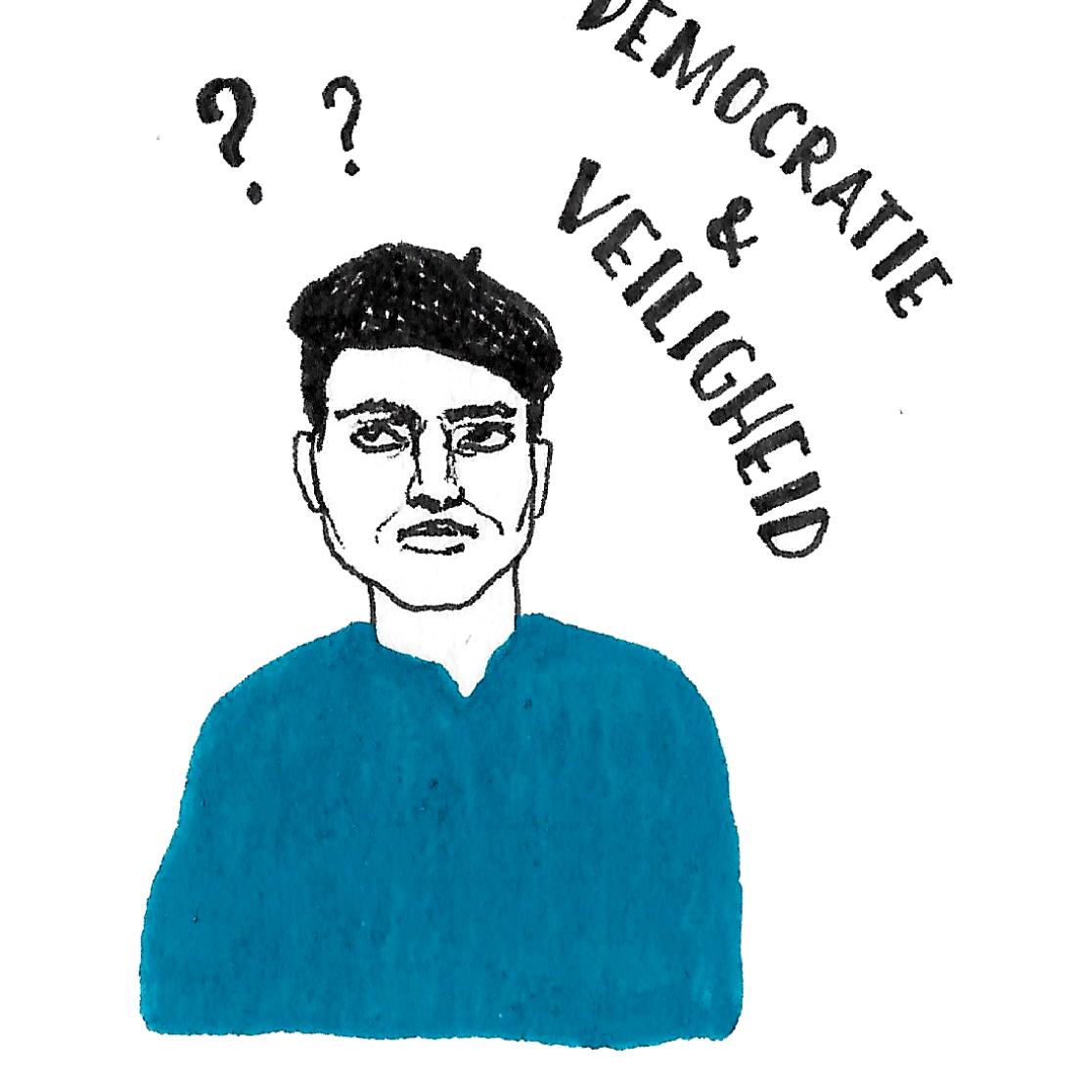
Academic bubble
All support is welcome, especially that of Maastricht University. CUBE can make good use of the expertise within the Working on Europe project. "Particularly with regard to data and analysis. We need some strong shoulders to stand on."
In Riedmiller’s view, it’s a good thing that not only EU and national politicians, but also the city and academics, are trying to narrow the gap with European citizens. “If we really want a more inclusive society, it’s essential to burst the separate bubbles of the academic world and the citizens.”
More connection, more democracy
A stronger connection with European citizens is crucial, says Riedmiller. “Academic research needs to focus more on what citizens want and need. If we’re trying to achieve a more democratic Europe, then we need the ‘demos’ so that we can all work on the ‘cracy’, including the bureaucracy in Brussels. If a post-national political order is where we want to go, we need to start from the very bottom.”
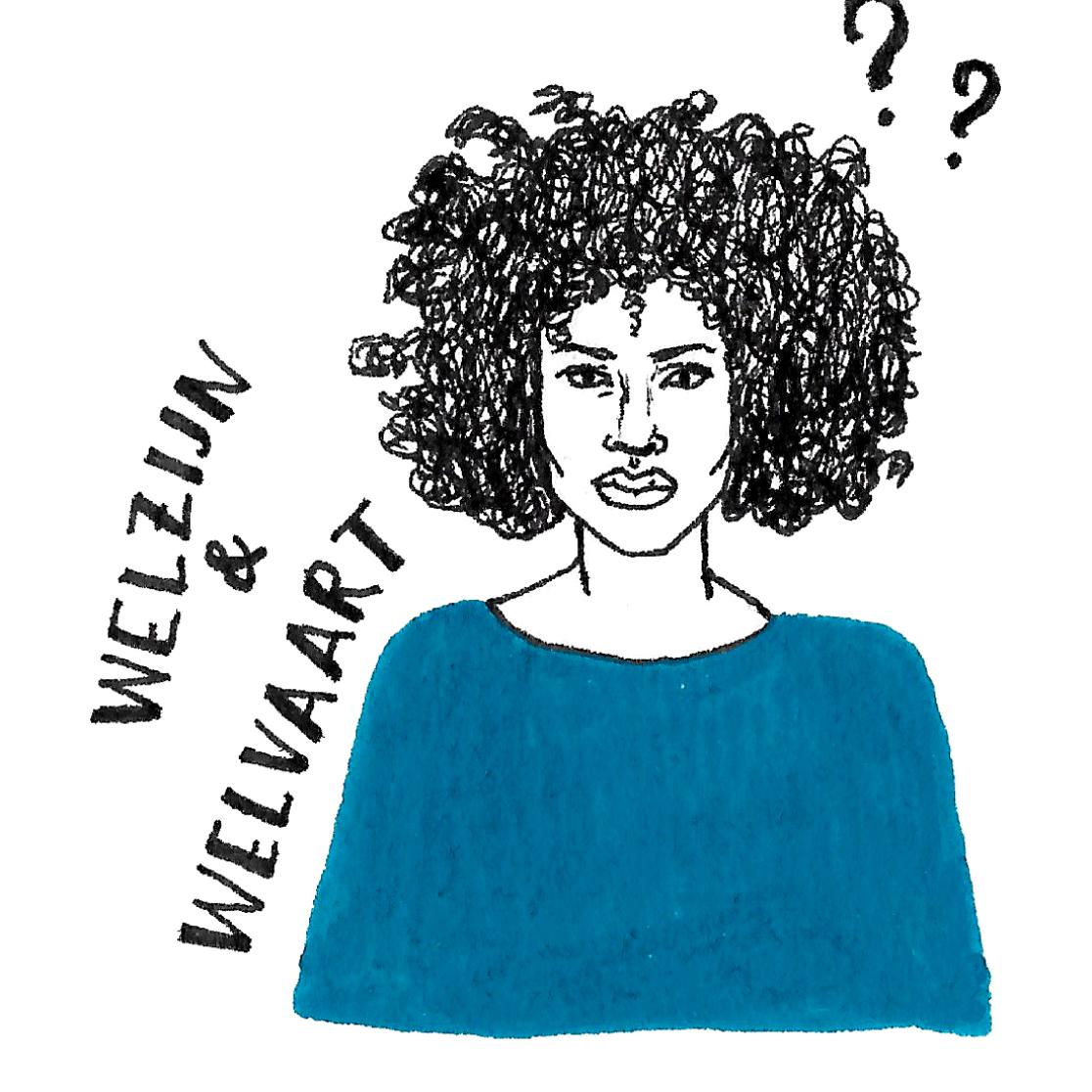
Also read
-
Empowering Smallholder Farmers in the Data Economy: Unlocking Opportunities and Overcoming Obstacles
Frederik Claasen, the head of policy at our partner organisation Solidaridad Network on the opportunities and obstacles facing smallholder farmers in their data ecosystems.
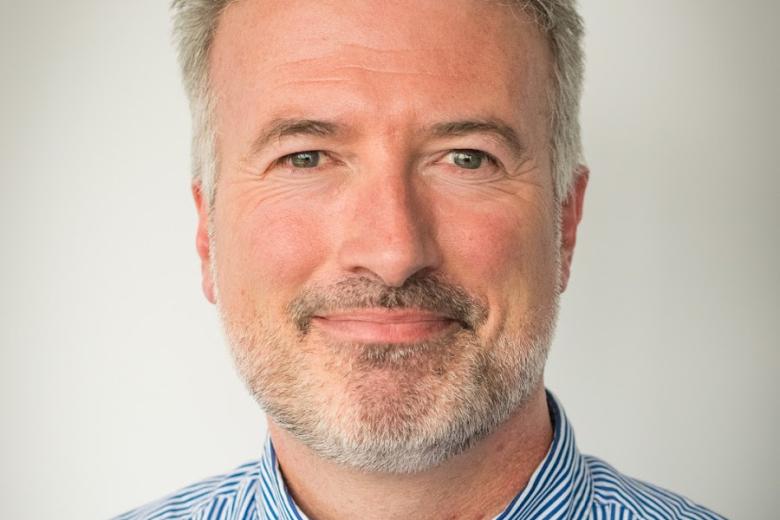
-
How do involuntarily returned migrants fare in Senegal?
The PhD research of Karlien Strijbosch focuses on Senegalese migrants who were forced to return home after a stay in Europe. Doing justice to such stories is no easy feat, especially when you come up against walls of silence, distrust and shame. Strijbosch and her supervisor Valentina Mazzucato...
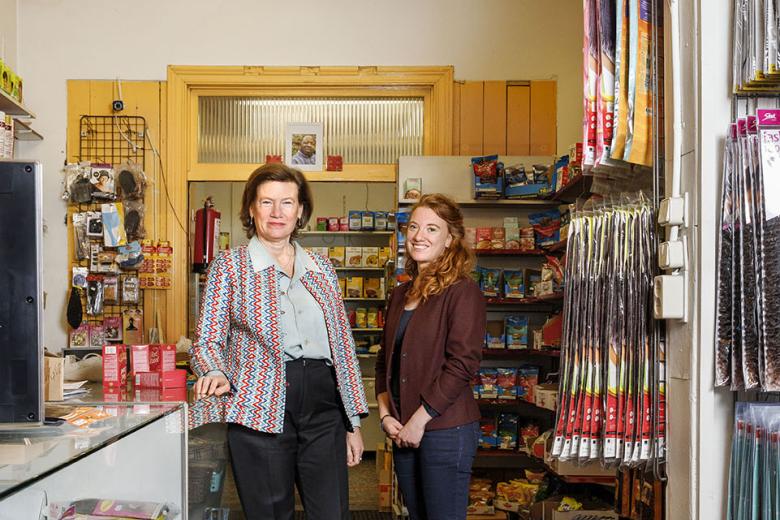
-
Soft landing in Vienna
After several rocky years, Maastricht University alum Lea Vink has found her feet in Vienna. Professionally, she is taking new steps at the crossroads of aviation and organisational psychology. And on a personal level, luck has smiled on her since her transition from man to woman.
